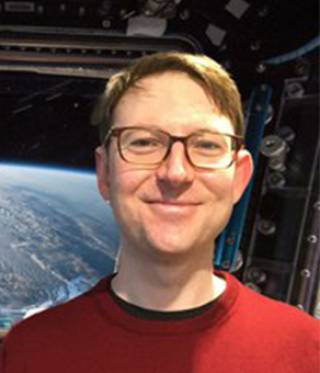Research Title
Geopolitics in Freefall: The International Space Station and More-than-Terrestrial Diplomacy in Microgravity
- More about William
Education
- 2020 - Ongoing: PhD Candidate Human Geography, University College London
- 2019 - 2020: MSc Environment, Politics and Society, University College London. Dissertation - ‘It was much easier to blame it on Them’: Dialogues on National Identity in Terry Pratchett’s Jingo
Background
Prior to coming to academia, I spent a decade serving at various levels of government in the United States, from the local judicial system to the US Department of State at the United Nations. I am interested in all things outer space, speculative and science fiction, and collaborative research.
I am a member of the UCL Collaborative Social Science Domain and one of the founders of Speculative Worlds, a research collective focussing on speculative thinking and collaborative creative methods. I was recently invited to speak on the politics of outer space at UCL Leaders 2023.
- Publications
- Stewart, W., and Dittmer, J. (2023). More-than-Human Space Diplomacy: Assembling Internationalism in Orbit. The Hague Journal of Diplomacy (published online ahead of print 2023)
- Research Interests
This research aims to engage human and political geography further and more deeply in the burgeoning project of the social science of outer space. I continue the nascent project of the ‘new geographies of outer space’ by conceptualising the ISS as a geopolitical assemblage. In doing so I explore the ways that the cosmic imaginary intersects with the politics of outer space.
Specifically, I argue that gravity is a political force in orbital and outer space. This makes a politics that is materially and conceptually distinct from terrestrial politics and which, I argue, defies terrestrial analogue. I explore how gravity comes to matter in international cooperation and diplomacy in orbit, and the impact of gravity on the embodied experience in and of orbit. This research is intended to build on the current project of bringing geographers, metaphorically speaking, to the cosmos, specifically by advancing the critical geopolitics of outer space.
I also focus on the role of gravity in human and political geography and explore the ways it becomes an important factor in the politics of outer space. I aim to address these issues by conceptualising the ISS as a more-than-human geopolitical assemblage in order to explore the materiality and embodied experience of the ISS.
 Close
Close


